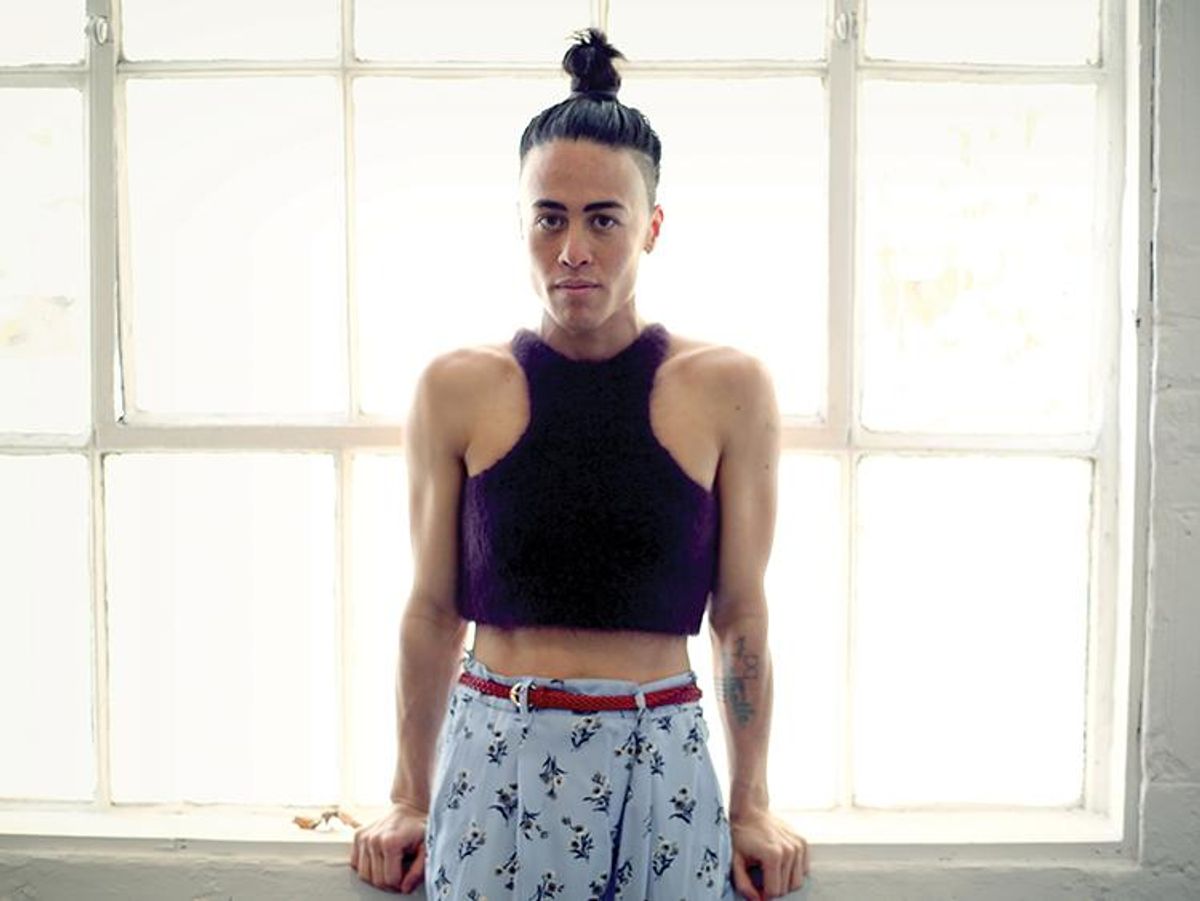Art & Books
Artist Wu Tsang on How Performance Complicates Identity

Boychild
The L.A.-based artist gets into "lesbian kung fu," and much more.
March 23 2016 6:43 AM EST
November 04 2024 11:07 AM EST
By continuing to use our site, you agree to our Private Policy and Terms of Use.

The L.A.-based artist gets into "lesbian kung fu," and much more.
The Los Angeles-based artist Wu Tsang is talking about "lesbian kung fu." Calling from San Antonio, Texas, where she is in residency at the nonprofit contemporary art gallery Artpace, she is describing her new film, Duilian, about the life of the famous revolutionary poet and feminist activist Qiu Jin and her intimate friend Wu Zhiying. Qiu was executed in the first decade of the 20th century after a failed uprising against the Qing dynasty.
Tsang and her partner and collaborator, the gender-blurring performance artist Boychild, have recast their own relationship to play the two women. "It started as a joke," Tsang says, but after 10 years of research the work took serious shape in 2015, when she was living in Hong Kong, where the film premiered on March 12.
This is how Tsang often operates, toying somewhat provisionally with an idea before it gathers force and becomes a fully realized project, as with her best-known film, Wildness, her 2012 portrait of the Los Angeles LGBT and Latin bar the Silver Platter, a venue where she hosted a queer party of the same name with the DJ-producers Nguzunguzu and Total Freedom.
Like the experimental filmmaker Charles Atlas, Tsang's blueprints are the unscripted realities of nightlife and performance. For her, performance provides an open territory for the exploration of identity--her own (she previously used male pronouns) and others'. Atlas's 1987 Hail the New Puritan--a gorgeous fictionalized documentary about the Scottish dancer Michael Clark--has been something of a template for Tsang's work, which similarly focuses on the improvisational and immediate energy of the live spectacle: "How do you capture that?" she asks. "Charles Atlas did it."
Capturing performance is the central dilemma of another film she has in the works, the science fiction piece A Day in the Life of Bliss, which she premiered in 2014 in a condensed form and plans to release as a 75-minute feature in 2017. It originated when Tsang befriended Boychild in L.A., and continued when Boychild toured Europe with the queer rapper Mykki Blanco; Tsang, who was living in Stockholm at the time, tagged along and chronicled the tour. Set in the near future, the film tells the story of Blis (played by Boychild), a famous pop star living in a world beholden to Looks, which, as Tsang explains, are "digital avatars that control humans through a panoptical social media platform" based on the transmission of mind-controlling "frequencies." Blis, whose every move is being tracked by her public and the Looks, retreats to an underground community that resists the invasive regime through dance music (dance figures heavily in Boychild's own work).
Performance complicates identity for Tsang. In a recent interview with MoMA associate curator Thomas J. Lax for Not in My Language, a new monograph of her work published by Walther Konig, Tsang calls it "a kind of drag," one that allows her body to play " 'host' for other creatures." As she explains, "being ethnically and gender ambiguous, I often 'pass' as a lot of different things. I find that people's assumptions about what I am become more a reflection of their own identity issues."
The artist's work often challenges those assumptions by deconstructing the tools we use to produce identity, particularly language. The book's title plays on the name of a YouTube video by the autism-rights activist Amanda Baggs, whose own work traces the experiential limits of space and language. Such limits--those placed on identity and an artistic medium--are Tsang's primary concern. Before we hang up, she poses another question: "How do you translate the language of performance into the language of film?" She pauses, but never answers.
Like what you see here? Subscribe and be the first to receive the latest issue of OUT. Subscribe to print here and receive a complimentary digital subscription.